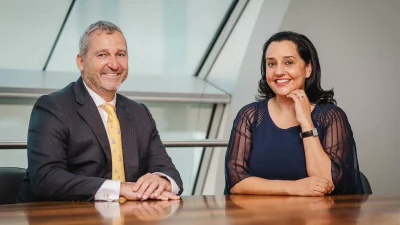Renewables sector transformed into global asset class


The appetite for renewable energy infrastructure and strong focus on environmental, social, governance (ESG) agendas has helped transform the sector into a highly competitive and global asset class, according to bfinance’s report.
The study found that investor appetite has been increasing and a growing number of institutional asset owners were seeking ESG-related ‘thematic investments’ and/or ‘impact investments’ that explicitly aim to deliver positive non-financial outcomes.
According to bfinance data, 34% of investors in real assets (infrastructure and real estate) were involved in thematic investing, with a further 20% considering doing so and 46% of asset owners globally were assessing portfolio carbon emissions, versus just 13% three years ago, and a further third are “actively considering” doing so.
The report also found a considerable growth in the number of funds available to investors in renewable energy infrastructure, with more than 65 strategies fundraising as of early-2021 compared with approximately 50 in 2019.
Further to that, a growing number of strategies targeted less-well established themes associated with the energy transition, such as smart meters, electric vehicle charging or grid stability projects.
Additionally, due to a general reduction in the expected returns, particularly for conventional technologies in new markets, managers were evolving their strategies to remain attractive and there was an increasing trend of managers prepared to enter projects during the development phase, with some managers expanding the geographical remit, such as adding Central and Eastern Europe or developed Asia, the report said.
The study also noted that greenfield investment had become mainstream and it was important to distinguish between construction risk and development risk, as renewables differed significantly from other types of infrastructure investment in this regard as construction periods in mainstream infrastructure could be often longer than the development phase, whereas the construction lead-time for conventional renewable technologies was now relatively short.
The report also found that while ESG standards were generally improving in this asset class, there was a differentiation between managers who rested on the argument that renewables represented a visible form of ESG in action versus those who were more committed to the broader ESG picture.
Anish Butani, senior director at private markets at bfinance said: “Although renewables seem to be the way forward for global energy production, we are now entering a new phase for the emergent asset class of renewable energy infrastructure. The economics of this asset class are fundamentally changing with the overall withdrawal of subsidies and the development of the technologies. With more competition than ever, both from a fundraising perspective and an investment perspective, managers are having to be creative and adapt to the new climate.”
Recommended for you
Magellan Financial Group experienced $1 billion in net outflows during April but managed to offset this and report a rise in FUM, having also announced its fourth fund from its partnership with Vinva.
Having officially opened its doors, ETF Shares – led by three former Global X employees – has now launched its first three ETF vehicles on Cboe Australia for financial advisers.
First Sentier Investors has hired its incoming chief financial and strategy officer to drive growth, having also confirmed its entry into the Australian ETF market last month.
Platinum Asset Management has lost a near-$1 billion institutional mandate as data shows its funds under management fell below $10 billion in April.















